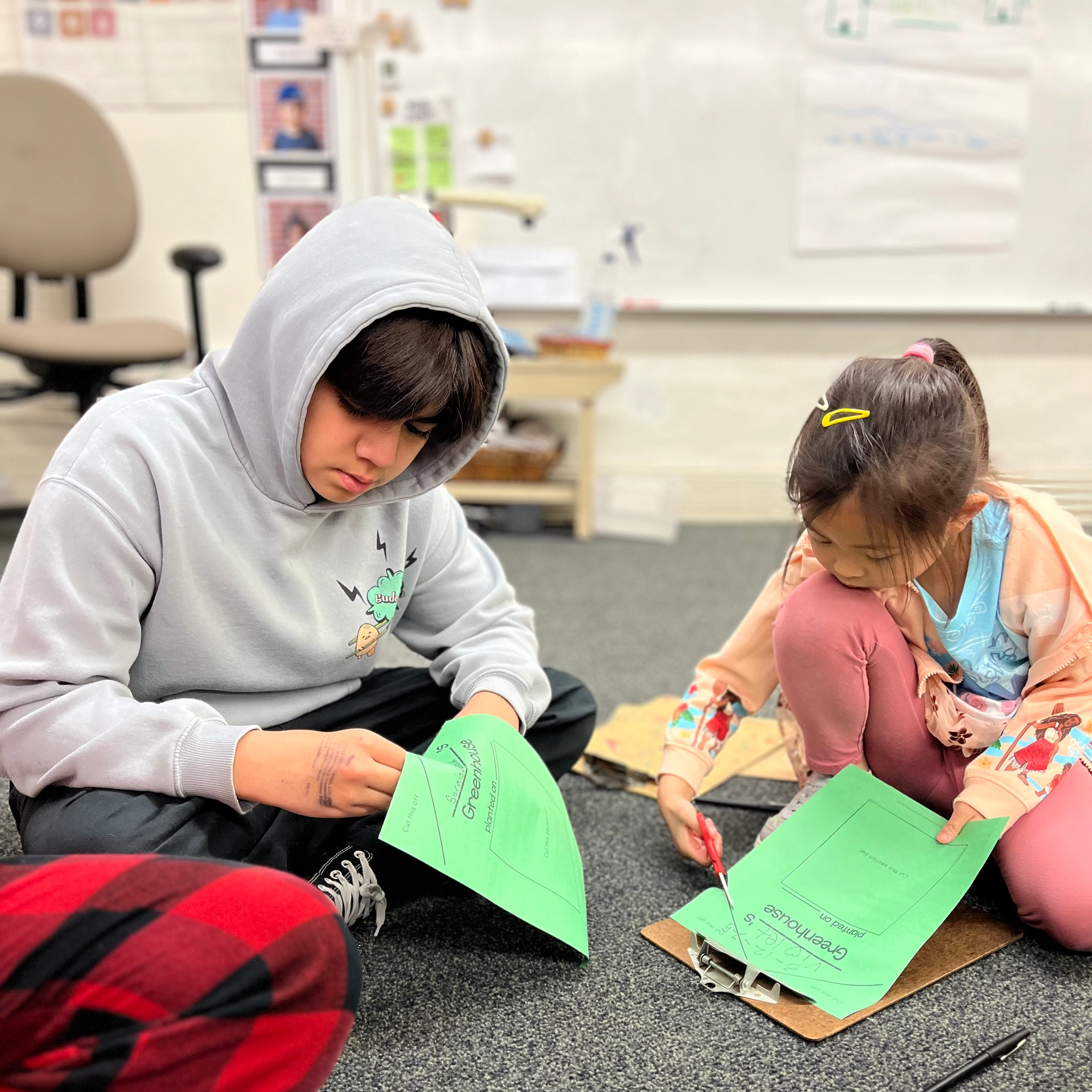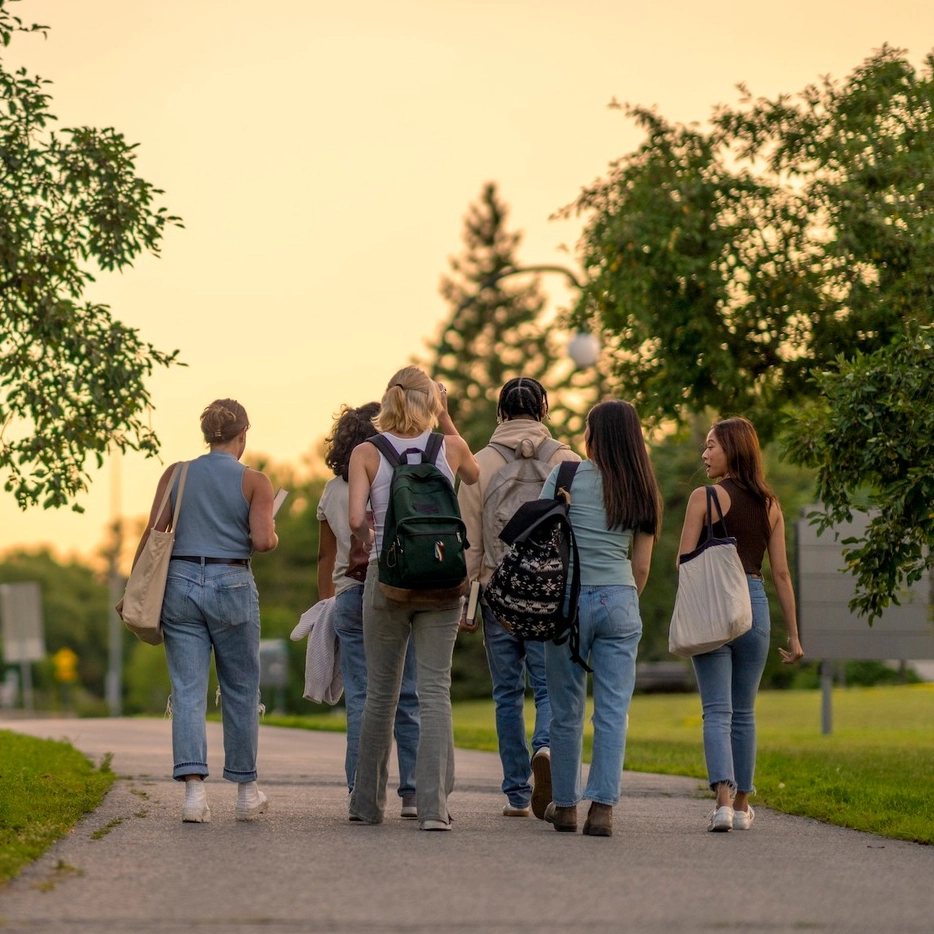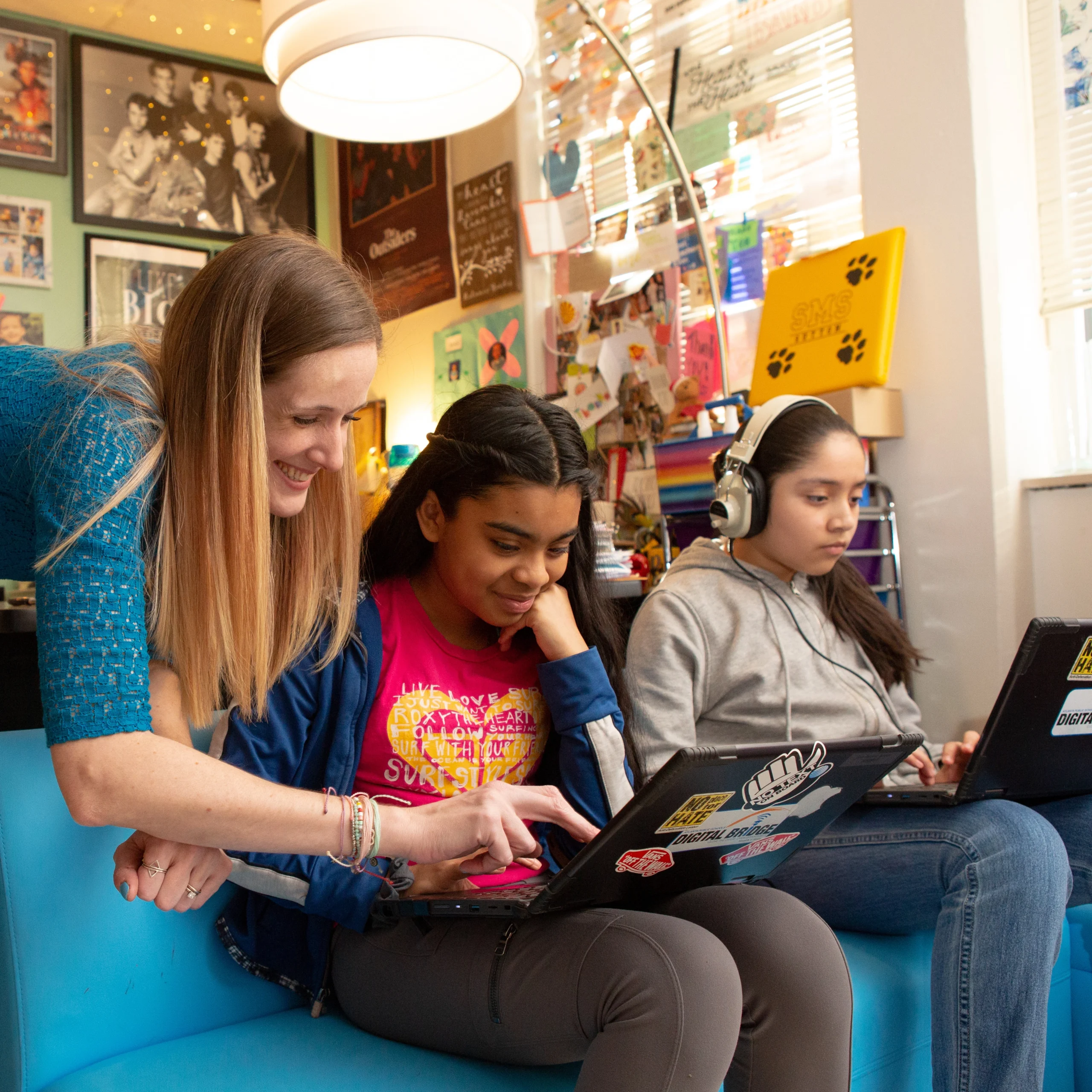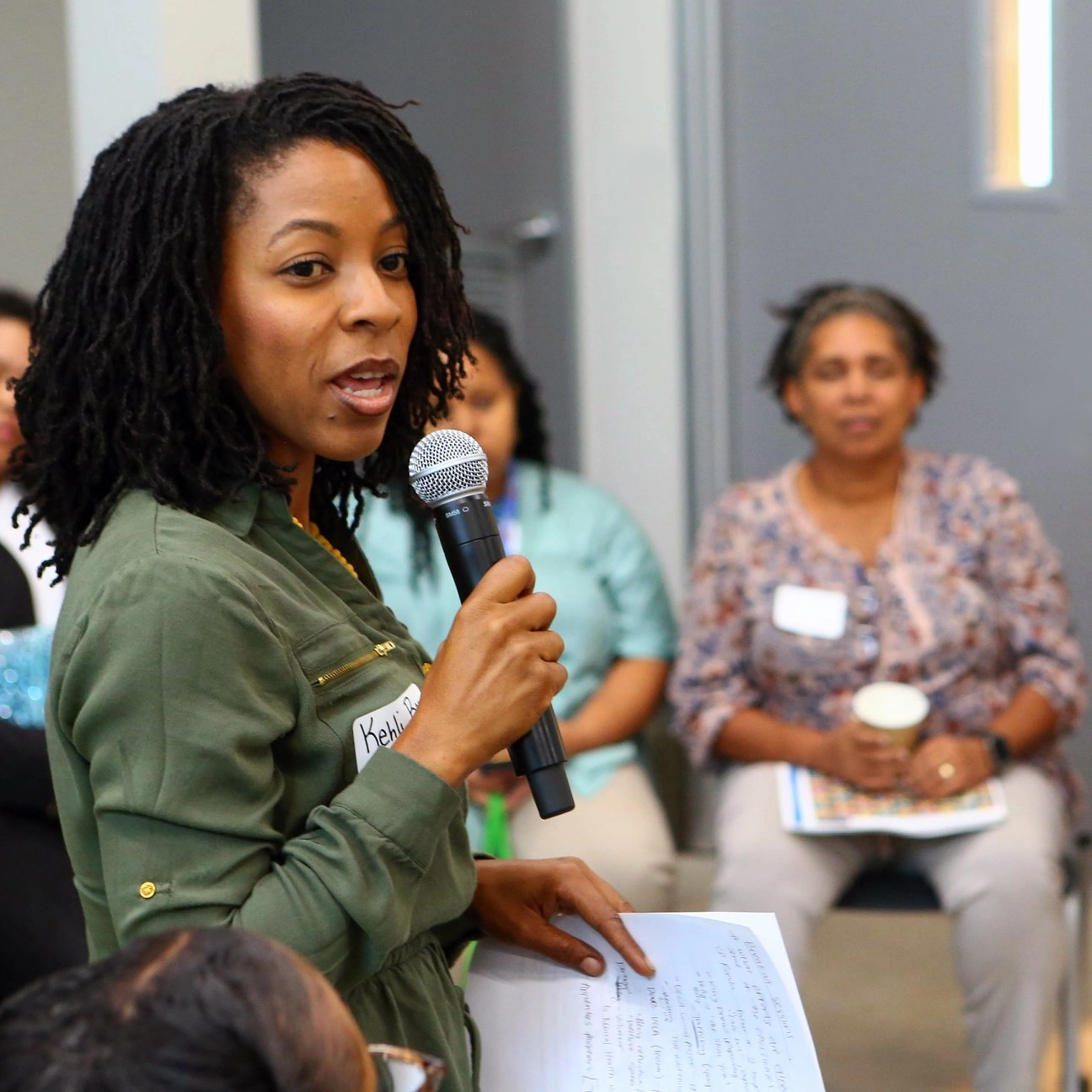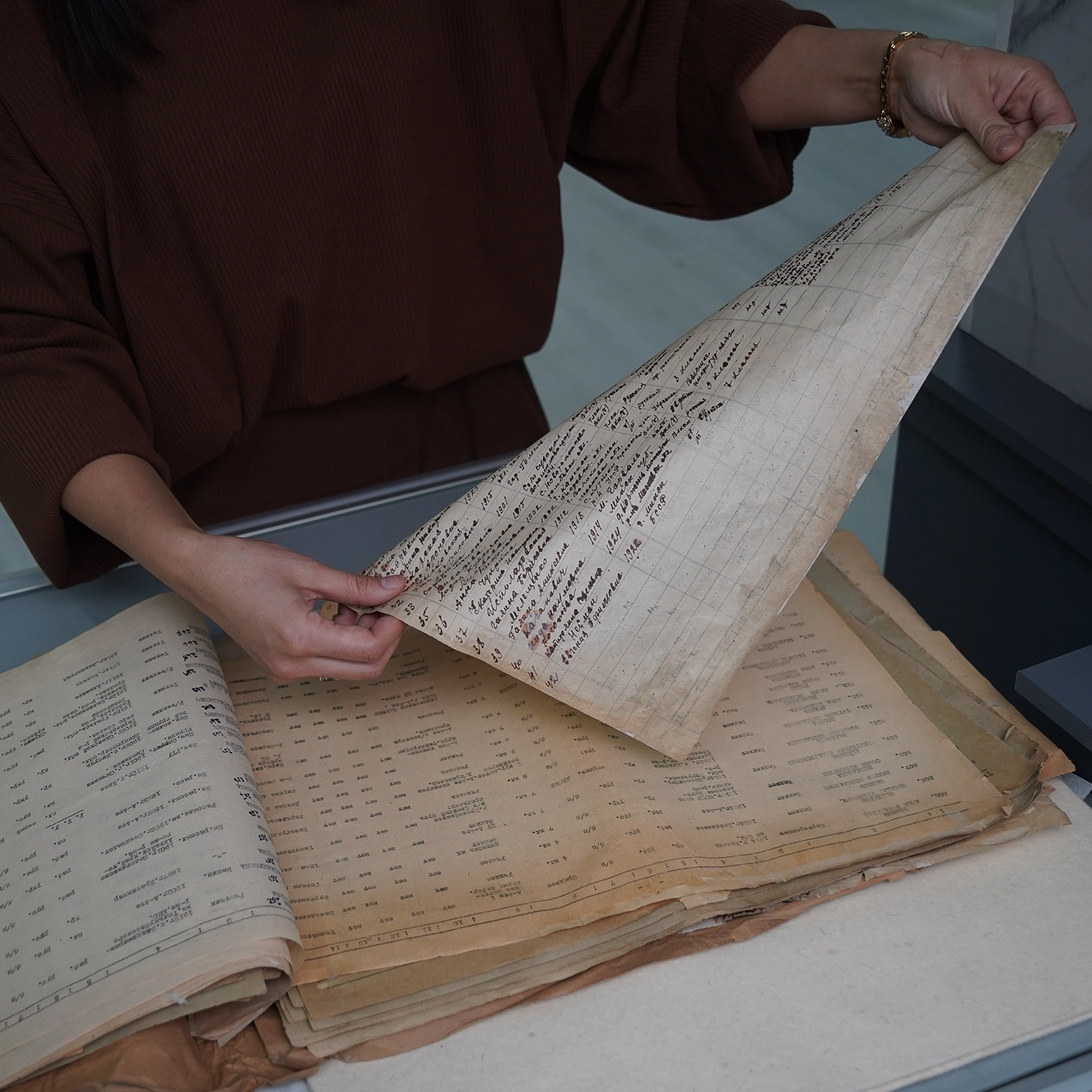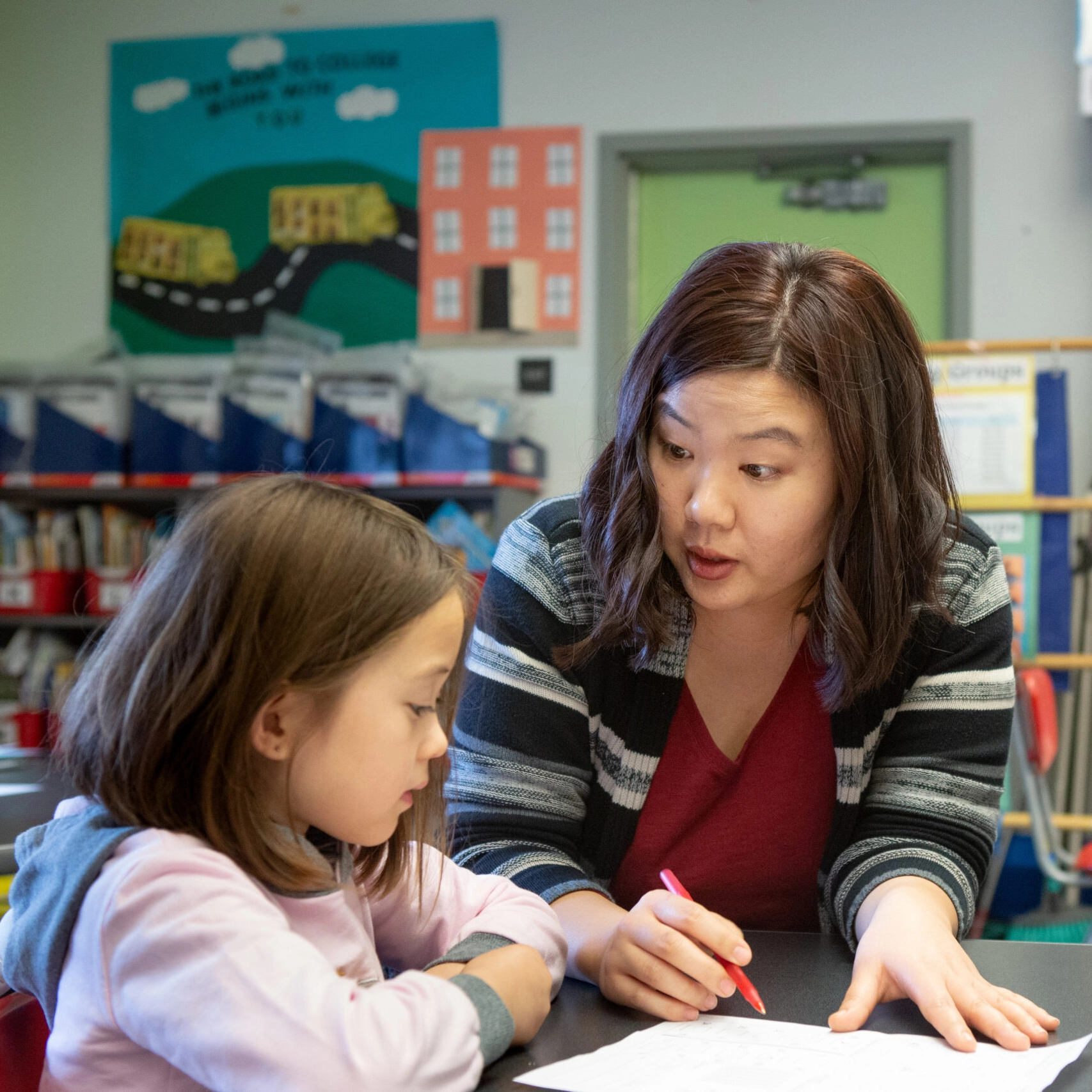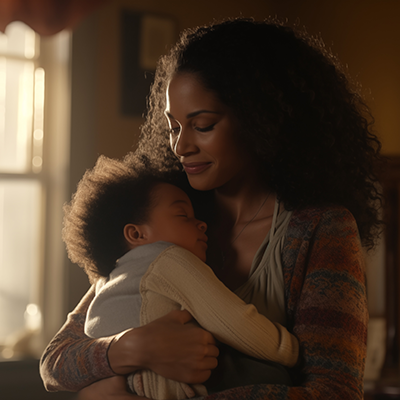Community Archives Lab: Marginalized Populations and Research Work Together to Preserve Little-Known Histories
By Joanie Harmon
November 14, 2025
The UCLA Community Archives Lab explores the ways that independent, identity-based memory organizations document, shape, and provide access to the histories of minoritized communities. Founded in 2016 by Professor Michelle Caswell, the Lab partners with grassroots organizations to ensure that communities historically excluded from institutional archives have the tools, training, and recognition to steward their own histories.
The Lab is distinctive because it serves a dual purpose of advancing community-engaged scholarship in archival studies while preparing a new generation of archivists.
“Our student interns learn so much from the communities they work with,” says Professor Caswell, inaugural special advisor to Executive Vice Chancellor and Provost Darnell Hunt on community-engaged scholarship. “They then bring these skills with them to their careers after graduation, catalyzing change in the field.”
“With the Lab, we’re actually connecting with local communities and thinking more broadly about what it means to document [them] and to be in partnership with communities who wish to document themselves,” says Professor Tonia Sutherland, co-director of the Community Archives Lab.
Through paid internships and fieldwork, MLIS students are embedded at community archives across Southern California. Over the last seven years, the sites have included, the Chinese Historical Society of Southern California, the June L. Mazer Lesbian Archives, La Historia Historical Society Museum, the Skid Row History Museum, and Visual Communications. For some, these placements become long-term careers in the communities they serve.
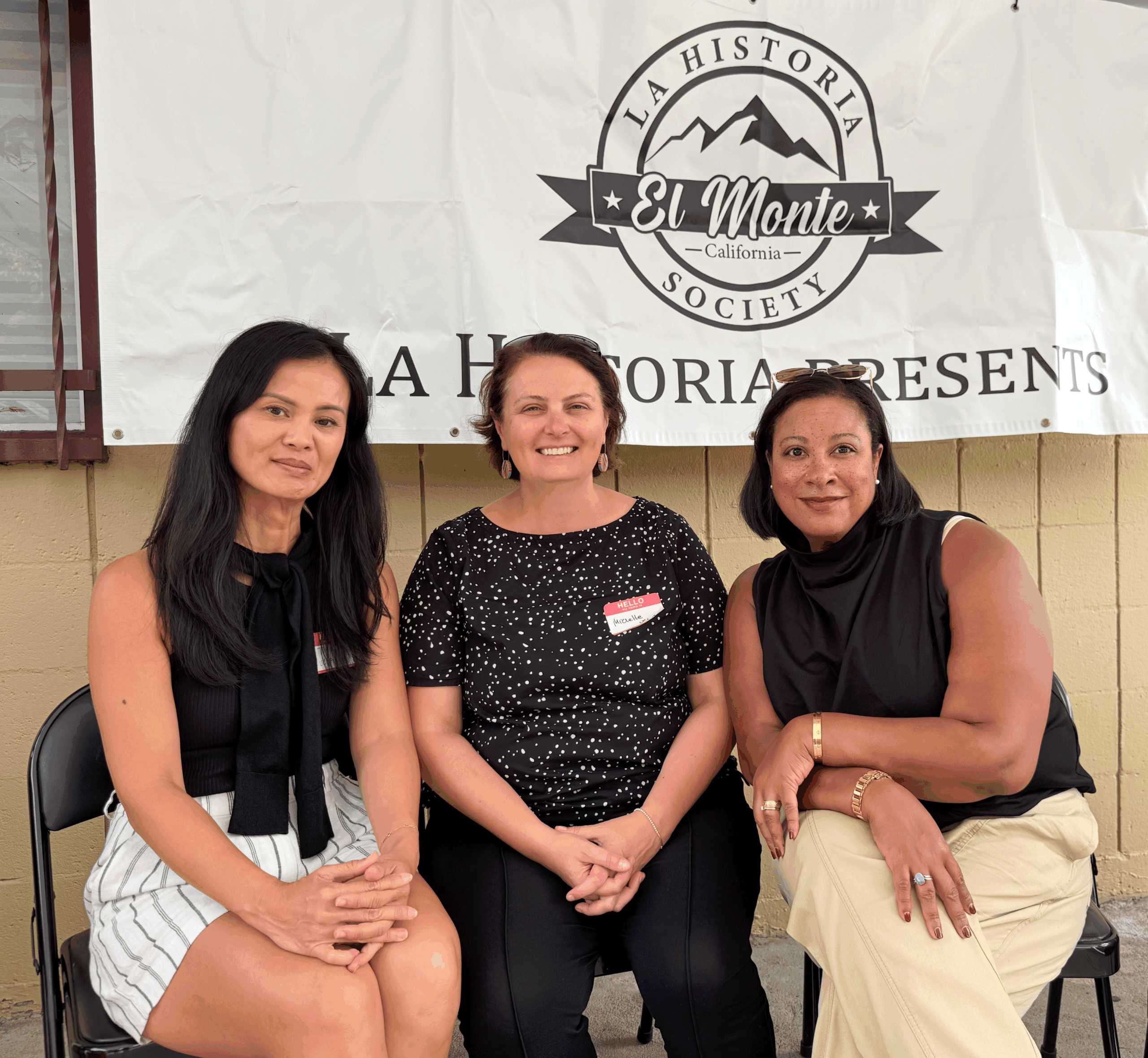
Building on the success of the paid internship program of the UCLA Community Archives Lab, Caswell, along with Sutherland and Thuy Vo Dang, UCLA assistant professor of information studies, co-founded Faculty Organizing for Community Archives Support (FOCAS) in 2024. FOCAS is a collaborative of faculty from nine universities in the U.S. and Canada that is leading a three-year program of paid internships at community archives, as well as support for curricular development and student participation in conferences and professional associations.
“For MLIS educators to make an impact in transforming our field, we need to recognize the value of lived experience and grounded knowledge from community organizations [and] archives,” says Professor Vo Dang. “Bringing in material support for these community partners through advocating for larger stipends and our interns’ paid work are crucial ways for UCLA to engage our nearby communities.”
Alumni like Sam Stroud and Priscilla Avitia embody this impact. Both turned their community archives internships into professional positions. Stroud is now an archivist at the Mazer, creating metadata for the archive’s subject files. This summer, Stroud co-presented a poster at the annual conference of the Society of American Archivists, based on her experiences with FOCAS and the role of community archives as critical entry points into the archival profession.

“When I started the MLIS program, a couple of mentors advised me, ‘You’re probably not going to be able to get a job in community archives – stick with UCLA Library [or] a traditional bigger archive, a university archive that’s more stable,’” recalls Stroud, who also worked as a graduate student doing metadata cleanup for the UCLA Modern Endangered Archives Program, a digital library program of the UCLA Library.
“This was one of the reasons why I felt so strongly about doing a poster [for SAA], because I really want to legitimize community archives as a possible career path,” she says. “People view community archives as, ‘Oh, that’s a place to volunteer or to intern,’ but I was really excited to [prove] them wrong – changing that narrative a little bit.”
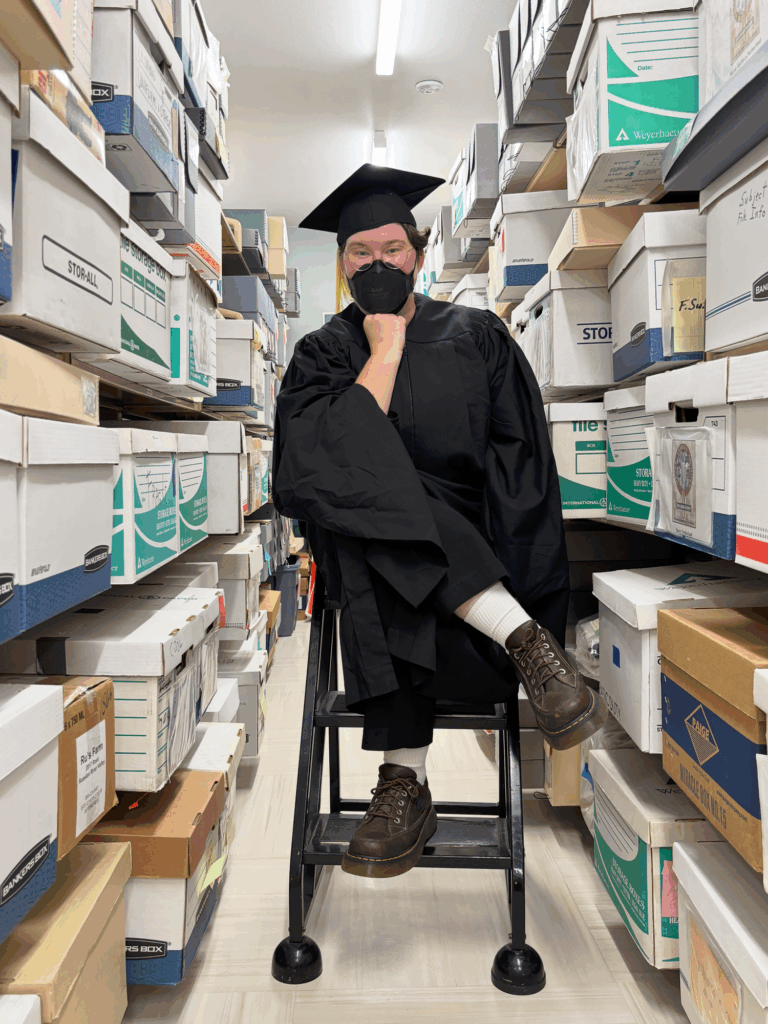
Priscilla Avitia, who graduated with her MLIS this past spring, is now working as the archive and collection manager consultant at La Historia, where she served her MLIS internship.
“So far, it’s a kind of a continuation of what I used to do as an intern,” says Avitia. “I worked on creating a collection management system and then also creating different forms that they didn’t have before, such as finding aids. I drafted a finding aid, and mostly what I’m doing now is going through the archive itself and starting to fill out the collections and fill out the finding aids.

“On the collection management side of things, I’m trying to look at how we can promote the collections we have, and how we can raise money. This involves reaching out not just to community members, but businesses that could potentially support the museum, and also looking into grants.”
Avitia says that MLIS students should get to know the local community near archives where they are interested in serving an internship.
“If a student is interested in a specific museum or a specific community archive, get to know the community simply by volunteering or talking to them,” she says. “I found it really helpful when I did my required hours for the community archives class at La Historia. I went there twice a week, every single week throughout the summer and I really got to know not just them but what was in the museum and what they needed help with.
“I also got to know the regular community members that come in, and that gives you a bigger idea – rather than just looking at it like just an archive or museum – you really start to look at it as a piece of the greater community and what that building means to the people that live there,” Avitia says. “You get a new appreciation of it. I was more looking at it like, ‘I’m Mexican-American, so obviously, I fit in it.’ But I grew up in a different part of LA, so our stories are a little different.”
Professor Vo Dang notes that the concepts and practices of community archives are gaining momentum with larger, more traditional institutions.
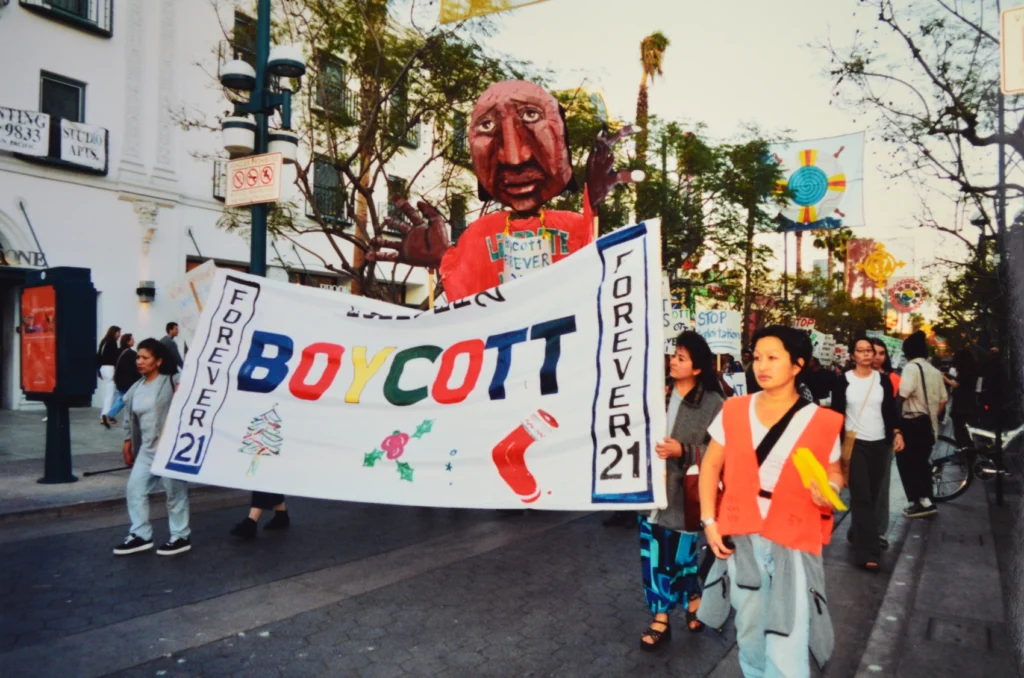
“Some museums are very interested in what the community archives literature has to say about their roles and responsibilities,” she says. “Museums have been called out for how problematic they’ve been in building their collections, extracting objects and knowledge from communities without the proper kinds of permissions and attributions, and then displaying it as the cultural wealth of their own institution.
“There’s a whole movement to repatriate materials back from colonial ventures – the British Empire extracting materials from, say, India, and now they’re starting to send things back,” says Vo Dang. “I believe the community archives literature holds those practices to account. The bigger intervention isn’t just about looking at small grassroots community archives and partnering with them but transforming the way that we approach memory work. Community archives research challenges traditional ideas about ownership and stewardship of cultural heritage and knowledge. We have to think about expertise not just from these well-resourced institutions, but also from groups that have been plundered and have faced the obliteration of their memory institutions.”
UCLA is the only California institution represented within FOCAS. Vo Dang says that many iSchools across the nation do not have the staffing or bandwidth to support courses on community archiving, which poses a challenge to the field in preparing students to work with marginalized populations.
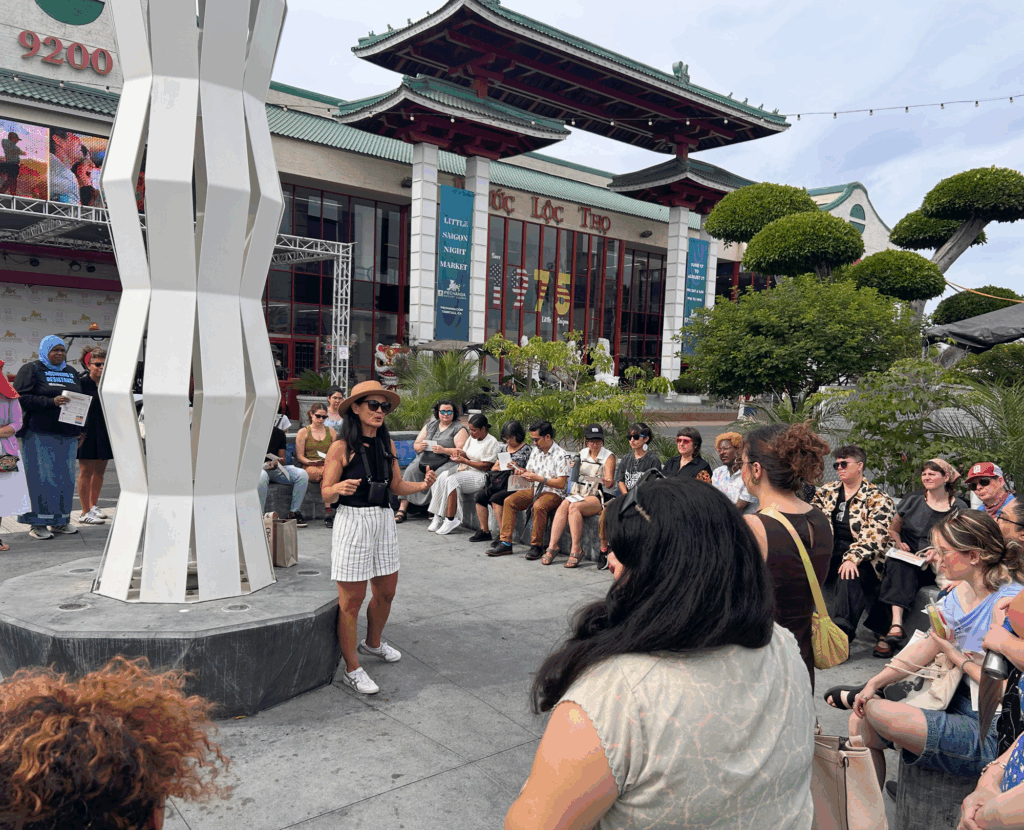
“What we do is so community-centered,” she says. “It’s not necessarily going in and saying, ‘We’re the experts because we’re the archivists,’ but instead asking, ‘What do you think would be the best way to document your organization’s history?’ or, ‘What do you see are the needs in your community around memory work and how to best care for its cultural heritage?’”
“[FOCAS] both aligns with and helps expand our curriculum in terms of community archives, and also our broader commitment to community engagement,” says Professor Sutherland. “It’s not only our students that are benefiting … but also the the greater Los Angeles community that is benefiting.
“As faculty and instructors, we are really fortunate to have this opportunity to think about the ways that community archives both support our curriculum and are interwoven into the curriculum in ways that lift up everything that we that we do as a department,” Sutherland says.
Professor Caswell is a co-founder of the South Asian American Digital Archive, an online repository that documents and provides access to the stories of South Asian Americans, and the author of two books, “Urgent Archives: Enacting Liberatory Memory Work” (Routledge, 2021), and “Archiving the Unspeakable: Silence, Memory and the Photographic Record in Cambodia” (University of Wisconsin Press, 2014) and numerous articles.
Professor Sutherland’s research focuses on entanglements of technology and culture with particular emphases on critical and liberatory work within the fields of archival studies, digital studies, and science and technology studies. She is the author of “Resurrecting the Black Body: Digital Afterlives in the 21st Century” (UC Press, 2023). Sutherland is also a faculty affiliate of the Center for Critical Race and Digital Studies at NYU and Co-Director of AfterLab at the University of Washington’s iSchool.
Professor Vo Dang is a scholar of oral history, archival studies, and ethnic studies. She is coauthor of, “A People’s Guide to Orange County” (UC Press, 2022), and “Vietnamese in Orange County” (Arcadia Publishing, 2015). In addition, she has authored a chapter on Vietnamese American history in the multimedia textbook, “Foundations and Futures,” a publication of the UCLA Asian American Studies Center. Vo Dang serves on the board of directors for Arts Orange County and the Vietnamese American Arts and Letters Association.
Award-winning research from the UCLA Community Archives Lab has been published in The American Archivist, Archival Science, Archivaria, the Journal of Critical Library and Information Studies, American Historical Review, Journal of Contemporary Archival Studies, Interactions: UCLA Journal of Education and Information Studies, The Public Historian, Archives and Manuscripts, and Library Quarterly, as well as in several edited volumes.
